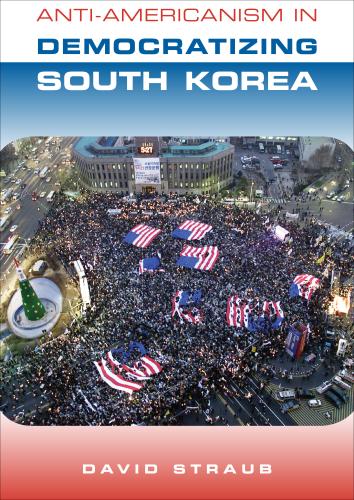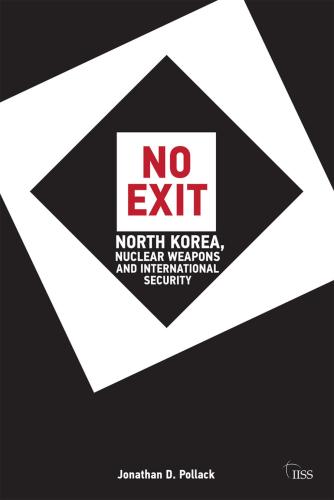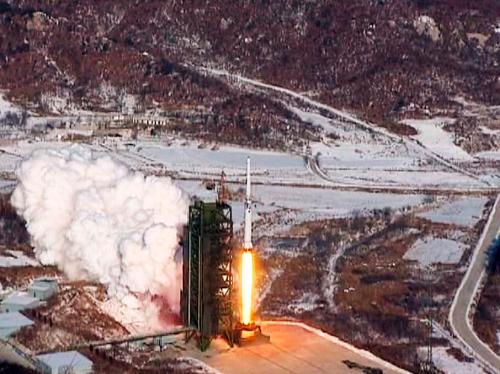The following remarks were given by Strobe Talbott at the World Knowledge Forum in Seoul, South Korea on October 11, 2016.
My thanks for the hosts and organizers of this conference. Many of you have heard other American speakers talk about our election this morning—Vice President Cheney, Wendy Sherman, and David Rubenstein.
As we open our afternoon session, let me offer some historical perspective. American presidential campaigns are, in a sense, like the Olympics: they happen every four years; there’s a lot of spectacle; they’re followed around the world; and they’re all about competition.
But that’s where the similarity ends. American elections seem to go on forever. And when they’re televised, it’s not always easy to figure out what’s going on and what it means. Nor are the events always edifying.
For all those reasons, this quadrennial process for picking our leaders often baffles our friends around the world.
In addition, the prevalent issues in a campaign are usually about the domestic economy and social policy that affect Americans’ wallets, households, incomes, health, safety, and jobs. Therefore, elections tend to turn America inward as it goes through the long national debate over who the next leader will be.
As for the debate itself, it sometimes degenerates into name-calling and smear tactics among the contestants.
When foreign policy does come up, it’s often accompanied by criticism of other countries that are often allegedly taking advantage of us. As a result, our allies and trading partners would prefer not be mentioned at all in the heated national discussion.
Now to the current election, which will, mercifully, end four weeks from today. All those negative factors I’ve just listed have been exaggerated to an unprecedented degree. It’s been an appalling experience for many of us Americans as well as for many of you. But at least we get to vote, while there are 195 countries whose citizens have no say in a decision that has very real consequences for them and their future.
The driving reason for this year’s bizarre and dispiriting election is, overwhelmingly, the candidacy of Donald J. Trump. I’m struck—though not surprised—by how concerned Koreans are about him. That’s partly because of his persona, but it’s also because of his views on America’s role in the world, especially in this region.
In order to get to Seoul in time for the conference, I flew for 14 hours from Washington and arrived last evening. That meant I was in the air, without benefit of Wi-Fi, when the second presidential debate took place. When I got to passport control at Incheon and stood in line for 45 minutes, I pulled out my iPhone to watch the replay of the debate. Quite a few Koreans around me noticed, and several asked me polite and knowledgeable questions about Mr. Trump, especially his opposition to trade deals, especially our bilateral FTA; his skepticism about the U.S.-R.O.K. alliance; and his blasé attitude toward proliferation of new nuclear-weapons states.
I had a hard time answering, or at least explaining.
Several of my fellow travelers asked whether Mr. Trump would turn those dreadful ideas into U.S. policy. There too I had no answer, not least because Mr. Trump is neither consistent nor coherent in his pronouncements. His trashing of 70 years of tried-and-true U.S. policy seems not to be based on principle, strategic logic, or ideological belief; rather, it seems to be for effect—that is, to arouse emotions among his disaffected followers and cast himself as a change agent without much consideration of the consequence of what he proposes.
Perhaps, if elected, his advisors would convince him to leave his campaign rhetoric behind. Would he, for example, follow the precedent of Jimmy Carter who, as a candidate in 1976, said he would remove U.S. troops from the Korean Peninsula, then reversed himself after winning?
I wouldn’t want to bet on that, given Mr. Trump’s repeated statement that his most trusted advisor is himself.
As others at the conference have said, Mr. Trump still has a chance of ending up in the Oval Office. But the trend in polling suggests otherwise. In both national surveys and in the swing states that will determine the outcome, he is falling behind precipitously.
Given the blow to his prospects from the video tape released last Friday and the hemorrhaging of support from his own party over the weekend, the speculation is now less about what a Trump victory would be like and more about what his post-defeat strategy will be. That is, will he contest the outcome, and with what result?
Whatever happens if he’s defeated, this we can be sure of: he won’t be gracious loser. That last word is one of his favorites, but not when applied to himself. Unlike other defeated candidates, he is likely to try to delegitimize the election and keep his diehard followers, who are many, all the more disaffected. That will be a source of ongoing trouble both for his own party—and for the next administration.
On that cautionary note, let’s turn to what that likelihood of a Clinton45 administration.
Wendy Sherman spoke about Secretary Clinton’s commitment to the U.S.-R.O.K. alliance and the seriousness she attaches to the threat from the North as well as the role that China can play in reducing tension and fending off a conflict. America’s solidarity with the R.O.K. has been baked into our foreign and security policy DNA, going back to President Truman and the Korean War.
As for the biggest peril in this region, the last four U.S. administrations—two Republican, two Democratic—have dealt with the potential and now the looming actuality of a nuclear-armed DPRK.
There is a widespread view in Washington that the coming of the third generation of leadership in Pyongyang has made the problem much more acute.
Kim Jong-il ruled for almost 18 years. In that period of time, he tested ballistic missiles sixteen times, and nuclear devices twice.
Kim Jong-un has been in power for five years, less than a third of the time as his father. Yet he has conducted 38 missiles tests, 22 this year alone, and three nuclear tests, two this year.
Along with the alarming numbers come alarming words. He talks about “standardizing the process of manufacturing warheads,” suggesting mass production and versatile weaponization of various ballistic missiles. He has also, in effect, proclaimed the DPRK as a nuclear-weapons state. It’s hard to avoid the conclusion that, while Kim Jong-il seemed to be using his nuclear program for bargaining purposes, his son is dead-set on developing an actual capacity—and as soon as possible.
That prospect is deadly not just for the Republic of Korea but for the United States as well, given the possibility that our West Coast might be vulnerable to attack within a decade. So I’m just adding an “amen” to what you heard from Wendy: the U.S. and R.O.K. are bound together for the foreseeable future—and beyond.
Before going to discussion, let me add one more point about the 2016 U.S. presidential election campaign and its ramifications for the future.
If, as it now looks, Mr. Trump is defeated, the phenomenon that he has channeled, fueled, exploited, and personified with surprising effect will have a long and troublesome after-effect. Both Wendy and David Rubenstein spoke about the challenge of building support in the United States for its global role in leadership, security, and trade
Again, some historical perspective.
Pretty much every four years, we Americans learn something about ourselves and about our country. Some of our presidential elections have been “eureka” moments. 2008 was one of those. The demographic revolution and the diversification of American society made it possible for a candidate to reach the presidency who is, literally, an African-American, with a name that resonates with both his African and Muslim heritages. Whatever their politics and preferences, a lot of Americans saw this as a near-miracle, and the realization of a 21st century version of our national motto, E pluribus unum: out of many races and creeds comes one nation, united.
The 2016 election, however, has taught us something more sobering about the state of our union. The United States of America is actually all too disunited—fragmented, polarized, and dyspeptic.
Much of that is because many of our citizens are hurting, and in their pain they are aggrieved, angry, and fearful.
Culture, ethnicity, and gender are definitely a factor. Many Americans with my complexion, my religion, my European ancestry, and my sex—though with far less good fortune—feel marginalized by the accelerating trend of the United States toward becoming a country with a majority of minorities.
Moreover, they also feel victimized by globalization. Their antipathy to that word translates into widespread opposition to free trade.
There is much to be said for globalization. It has, for one thing, created the global economic environment for emerging markets like Korea. But along with the winners, there are losers, notably in developed countries. In recent decades, political leaders in countries like mine didn’t take proper account of the depth and breadth of distress among their own constituents. Nor did they recognize the degree to which that distress would empower demagogues and populists.
Now we know. We’ve learned our lesson the hard way, this year in particular: in Brexit, in the rise of nationalistic parties in Europe, and in Mr. Trump’s appeal to large sectors of America.
A major challenge for governments on both sides of the North Atlantic is to address the downside of globalization’s impact on their societies. This does not mean repudiating open markets and trade pacts. Quite the contrary, it means shoring up the necessary public and political support for them.
Global trade, like so much else that is global, needs to be subject to governance. Hence the regulations and standards that have been negotiated with emerging nations that are ramping up their manufacturing capacity. Now there needs to be more emphasis on remedial action in the developed nations that have also benefited from trade, but whose workforce, especially in industries that have outsourced manufacturing, needs more robust and systemic help to weather the hardships and make the transition to a 21st-century economy. This, I believe, is the mega-issue that has emerged across party lines in the U.S. presidential campaign. It will also be a mega-challenge for the next administration.
Remember what Wendy Sherman said about the Obama/Clinton pivot to Asia: it didn’t mean turning away from the rest of the world. By the same token, a pivot to the U.S. home front on trade policy will not be a pivot to protectionism. Rather, it will be a rebalancing of robust international commerce, social progress, and inclusive prosperity at the global, regional, and national levels.
Achieving that balance will help make globalization itself more economically equitable and politically sustainable. That’s a goal that resonates, I believe, with the mission and ethos of this conference.










Commentary
The American presidential election and implications for U.S.-R.O.K. relations
October 13, 2016